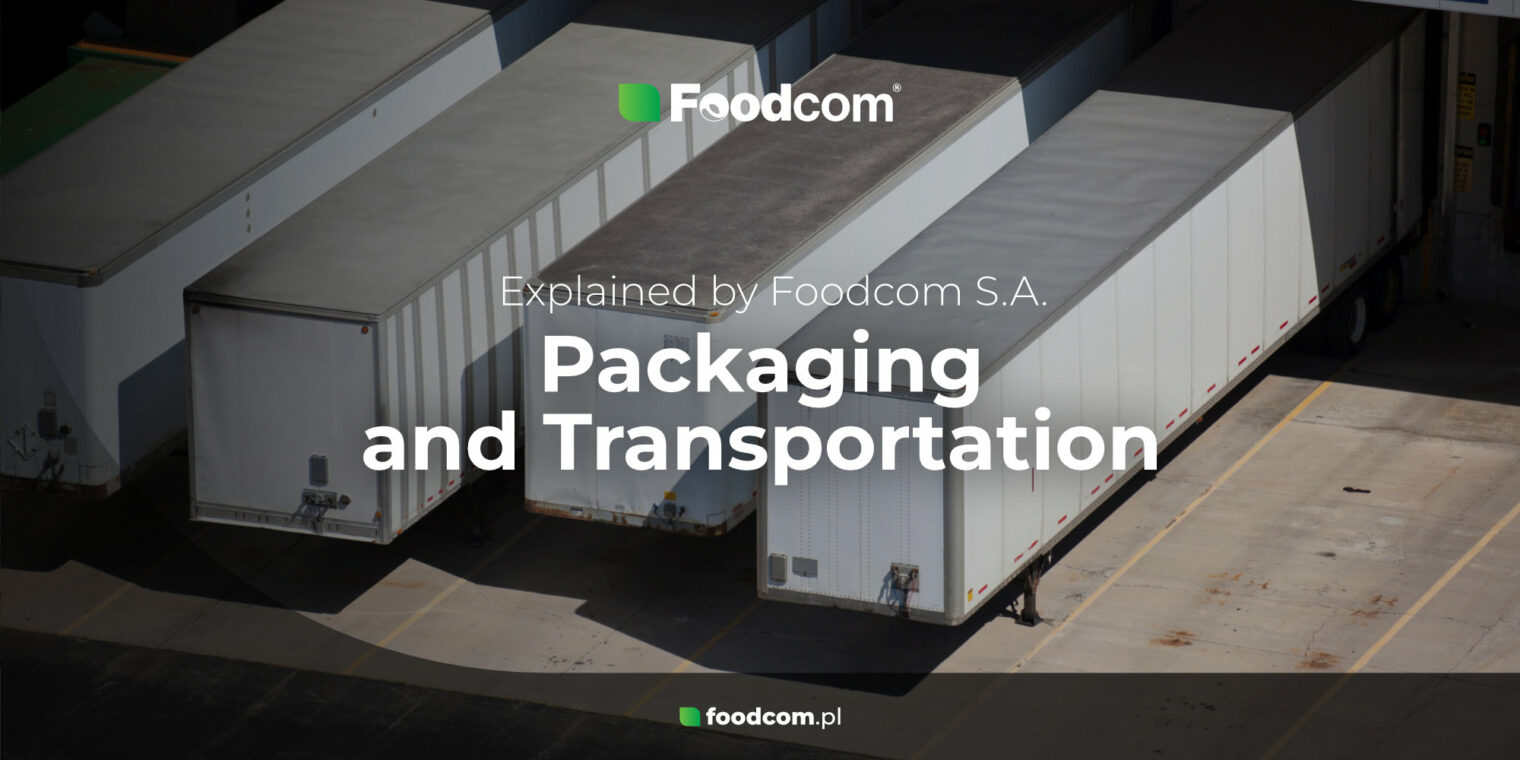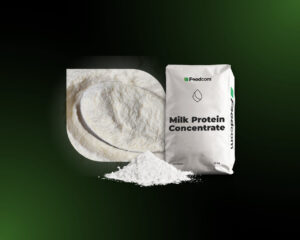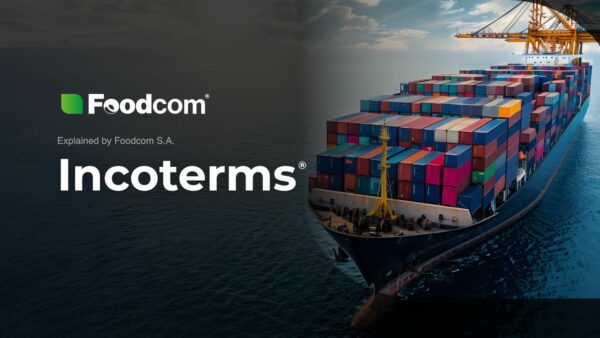Foodcom products are shipped through its logistics network to major nutritional companies, wherever the commodity is demanded in the world. Read our comprehensive guide about the most essential information about packaging and transportation of goods. Learn more about our transportation, storage conditions and certificates.
By choosing Foodcom, you can be sure that all the goods will arrive intact and on time!
Packaging
Storage conditions
The need to store material goods in warehouses arises from the fact that production is far ahead of demand. By definition, warehousing of goods is the activity of temporarily receiving, storing, keeping, picking, transporting, caring for, recording, controlling, and issuing tangible goods. Among the factors that change the quality of stored goods, temperature, air, humidity, and light play a special role. The ambient temperature of the stored goods must be neither too low nor too high.
Therefore, the basic rules for storing goods include ensuring the physical conditions of the space, protecting the goods from pests and external influences or maintaining hygiene in the premises. Many of the products should be stored in the original packaging of the manufacturer. In the case of food, feed and additives goods, they require different storage conditions than durable products.
Each of the products offered by Foodcom has its storage requirements. When reviewing a specific product on our site, you will get information about the required storage conditions under the “Shelf Life” tab. You can get more detailed information in the product specification file. Remember that it’s important to follow the manufacturer’s recommendations to preserve the properties of the product and extend its shelf life.
Safety first
Our many years of experience in the trade enable us to take appropriate measures when it comes to ensuring the necessary safety conditions. And in case of food, feed and additives – it’s significant to make sure that they are kept in unsullied conditions.
The rules governing trade in commodities have changed significantly as national laws have aligned with global requirements. The standards and requirements of trade laws are always followed by all our employees.
Packaging for Foodcom products
Below is a list of the most commonly used packaging in the product categories. Remember to check packaging on the website of products of your choice.
Dairy
MILK AND WHEY POWDERS – 15, 20, 25 kg bags, Big Bags*, loose in silo trucks.
LIQUID MILKS – Bulk tanker of 25 MT.
CHEESES – 1, 2.5, 3, 9, 13, 15 kg block, euro blocks or shredded and packed in 1 or 2 kg bags.
FATS – 25 kg blocks or cubes (butters), 25 kg bags or Big Bags.
Plant-based
PROTEINS – 15, 20, 25, 40 kg bags or Big Bags, loose in silo trucks.
STARCHES AND SUGARS – 25 kg bags, 50 kg, Big Bags, or loose in bulk.
Cat-3
ALL PRODUCTS – loose in tank or in Big Bags.
Additives
ALL PRODUCTS – 10, 25 kg bags or Big Bags.
*Term “Big bag” is used for 500-1000 kg bags.
If you require supplemental information about packaging issues, contact us.
Transportation
Transportation can heavily influence the quality of the commodity. That is why it is so important to keep them in a good technical and hygienic condition that protects them from contamination and allows them to maintain the perfect health quality of the transported products. They must have a loading area suitable for the type of food transported and a design that allows easy maintenance of cleanliness and order, as well as disinfection.
Our team consists of traders who, with the advice of experienced specialists in our logistics department, comprehensively select the most favorable mode of transportation. Together with the help of our sales support, we at Foodcom are always trying to find a way to work with our clients on the best terms.
Trucks will be used only for transporting food, in clean, appropriate containers to avoid the risk of contamination. The transport containers, which are in contact with the raw material, do not affect the quality of the raw material. They comply with the applicable legal requirements for food, in particular Regulation (EC) No. 1935/2004.
How many bags and of what weight can one pallet hold?
Each pallet holds 40 bags, each bag 20 kg.
How many pallets can fit into the truck?
There are 24 pallets that fit into the truck.
For milk powders, the truck holds 26 industrial pallets or 33 euro pallets.
How are conveyors loaded?
The truck has 24 pallets (each pallet of 12 tons) or a container of 40 DV.
How are products secured?
Each product is first secured inside with polyethylene foil and then with a paper bag.
Do we load products without pallets?
It is not always possible to load on pallets, but any changes are possible to put under
consideration. We prefer doing so using pallets, since we often transport food products. But truck loaders help to make sure to avoid any possible damage to commodities.
Our certificates
Our competence is confirmed by the certifications we have obtained. One of the most important is the Global Standard for Agents and Brokers. It provides a framework for managing the safety, authenticity, quality, and legality of products for food, packaging, and consumer goods companies that buy, sell. BRCGS certification for agents and brokers is recognized by many retailers, food service operations and manufacturers around the world when evaluating the capabilities of their suppliers.
Another crucial certification is GMP. It refers to the good manufacturing practice regulations promulgated by the U.S. Food and Drug Administration under the authority of the Federal Food, Drug, and Cosmetic Act. GMP regulations govern, among other things, keep recordings, personnel qualifications, hygiene, cleanliness, inspect equipment, process validation, and complaint handling. The purpose of the certificate is to ensure that products are consistently manufactured and controlled to quality standards. It is intended to minimize the risks associated with any pharmaceutical production that cannot be eliminated by testing the final product.
Why Foodcom?
Our great team of Sales Support will help our Traders conduct the contract and business deals in a smooth and efficient way to ensure the best quality service to all our Business Partners. Our logistics team will take care of transportation and the financial department will be responsible for all matters connected with the financial part of the deal.










